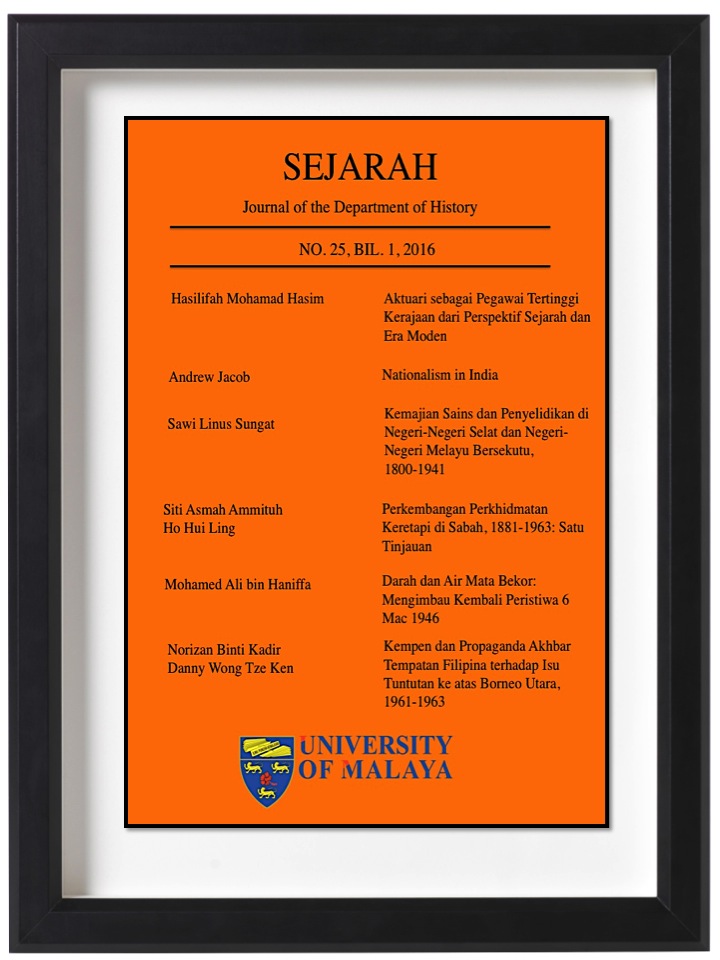AKTUARI SEBAGAI PEGAWAI TERTINGGI KERAJAAN DARI PERSPEKTIF SEJARAH DAN ERA MODEN
DOI:
https://doi.org/10.22452/sejarah.vol25no1.1Abstract
Actuarius was a title applied to a high government official in the Ancient Roman Empire. The original duty of an actuarius was to record the proceedings of the Roman Senate. The role of the actuarius continued to expand until the Eastern Roman Empire, or also known as the Byzantine Empire. At that time, the actuarius role in the government was not only limited to financial management but also involved in the distribution of wages to the Roman armies, military provisions and governmental policy-making. The historical background of actuaries, covering a span of thousands of years, demonstrates the importance of actuarial science within the context of a country. In the 18th century, the term actuary (which was derived from the Latin actuarius) was adopted by the Chief Official to refer to a position of a mathematician in a life insurance company. Over the past years, the demand for actuarial science continues to grow in various areas including in the public sector. Governments of some developed countries, such as the United States and the United Kingdom, started creating national actuarial posts to improve the formulation of economic and social development policies and the country’s leadership in general. In Malaysia, during the early days of the Federation of Malaysia, a qualified actuary was appointed and an Actuarial Service Unit was established under the Prime Minister’s Department. But, unfortunately, 50 years later, this unit has been abolished. In the modern era, many developed countries continue to recognise actuaries as high government officials who play key role in national development. However, this is not the case in the Malaysian context.


